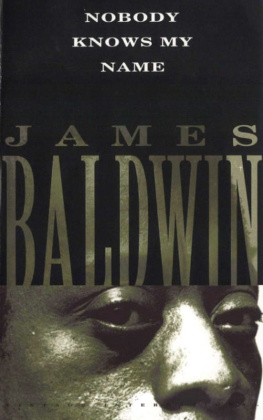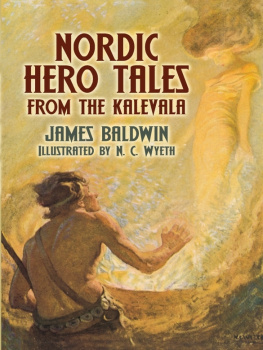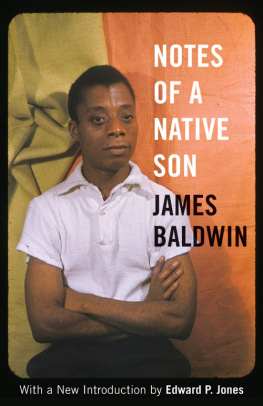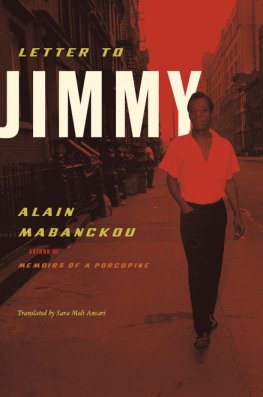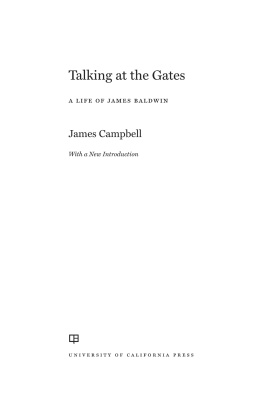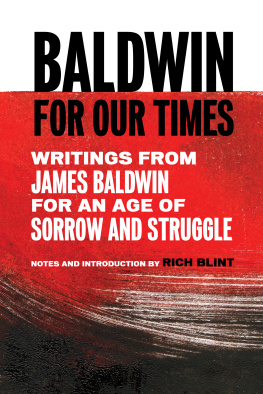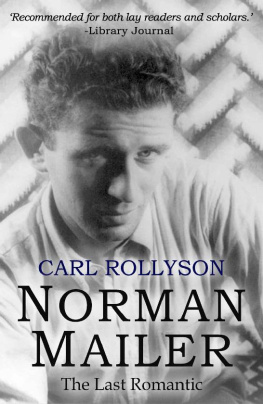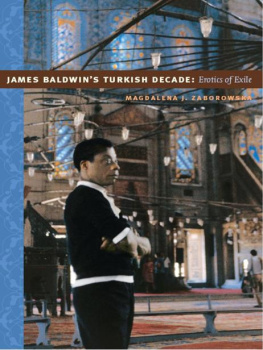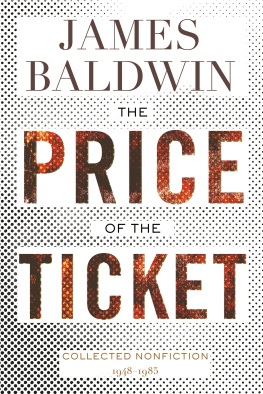James Baldwin - Nobody Knows My Name
Here you can read online James Baldwin - Nobody Knows My Name full text of the book (entire story) in english for free. Download pdf and epub, get meaning, cover and reviews about this ebook. year: 1992, publisher: Vintage, genre: History. Description of the work, (preface) as well as reviews are available. Best literature library LitArk.com created for fans of good reading and offers a wide selection of genres:
Romance novel
Science fiction
Adventure
Detective
Science
History
Home and family
Prose
Art
Politics
Computer
Non-fiction
Religion
Business
Children
Humor
Choose a favorite category and find really read worthwhile books. Enjoy immersion in the world of imagination, feel the emotions of the characters or learn something new for yourself, make an fascinating discovery.
- Book:Nobody Knows My Name
- Author:
- Publisher:Vintage
- Genre:
- Year:1992
- Rating:4 / 5
- Favourites:Add to favourites
- Your mark:
- 80
- 1
- 2
- 3
- 4
- 5
Nobody Knows My Name: summary, description and annotation
We offer to read an annotation, description, summary or preface (depends on what the author of the book "Nobody Knows My Name" wrote himself). If you haven't found the necessary information about the book — write in the comments, we will try to find it.
Nobody Knows My Name — read online for free the complete book (whole text) full work
Below is the text of the book, divided by pages. System saving the place of the last page read, allows you to conveniently read the book "Nobody Knows My Name" online for free, without having to search again every time where you left off. Put a bookmark, and you can go to the page where you finished reading at any time.
Font size:
Interval:
Bookmark:
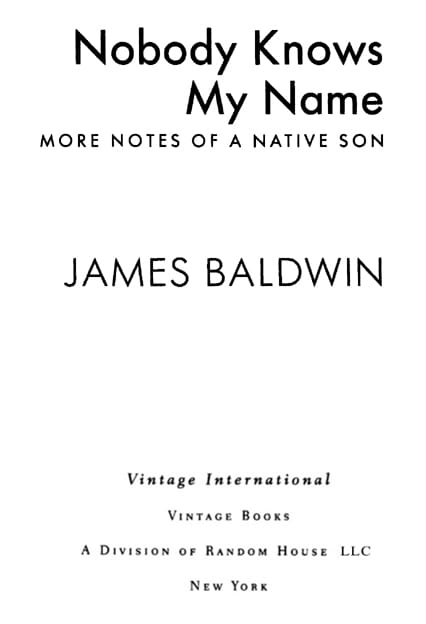
FIRST VINTAGE INTERNATIONAL EDITION, FEBRUARY 1993
Copyright 1961 by James Baldwin
Copyright 1954, 1956, 1958, 1959, 1960 by James Baldwin
Copyright renewed 1988, 1989 by Gloria Baldwin Karefa-Smart
All rights reserved under International and Pan-American Copyright Conventions. Published in the United States by Vintage Books, a division of Random House LLC, a Penguin Random House Company, New York, and distributed in Canada by Random House of Canada Limited, Toronto. Originally published in hardcover by The Dial Press, New York, in 1961.
The Black Boy Looks at the White Boy copyright 1961 by Esquire, Inc.
Librrary of Congress Cataloging-in-Publication Data Baldwin, James, 1924
Nobody knows my name / James Baldwin.
p. cm.
Originally published: New York: Dial Press, 1961.
eISBN: 978-0-8041-4973-0
1. Afro-Americans. 2. United StatesRace relations. I. Title.
E185.61.B197 1993
305.896073dc20 92-50565
Cover design by Marc J. Cohen
Cover photograph Bettmann/Corbis
v3.1
for my brothers,
George, Wilmer
and
David
Acknowledgment is made to the following publications in whose pages these essays first appeared. The New York Times Book Review for The Discovery of What It Means to Be an American (January 25, 1959); Encounter for Princes and Powers; Esquire for Fifth Avenue Uptown: a Letter from Harlem (July, 1960), reprinted by permission; New York Times Magazine for East River Downtown: Postscript to a Letter from Harlem (which appeared as A Negro Assays the Negro Mood, March 12, 1961); Harpers Magazine for A Fly in Buttermilk (which appeared as The Hard Kind of Courage, October, 1958); Partisan Review for Nobody Knows My Name: a Letter from the South (Winter, 1959) and Faulkner and Desegregation (Winter, 1956); Kalamazoo College for In Search of A Majority delivered there as an address; Esquire for Notes For A Hypothetical Novel (delivered as an address at the third annual Esquire Magazine symposium on the Role of the Writer in America at San Francisco State College, October 22, 1960); The New Leader for The Male Prison (which appeared as Gide As Husband and Homosexual, December 13, 1954); Esquire for The Northern Protestant (which appeared as The Precarious Vogue of Ingmar Bergman, April, 1960), reprinted by permission; The Reporter for Eight Men (which appeared as The Survival of Richard Wright, March 16, 1961); Le Preuve for The Exile (February, 1961); and Esquire for The Black Boy Looks at The White Boy (May, 1961), reprinted by permission.
These essays were written over the last six years, in various places and in many states of mind. These years seemed, on the whole, rather sad and aimless to me. My life in Europe was ending, not because I had decided that it should, but because it became clearer and cleareras I dealt with the streets, the climate, and the temperament of Paris, fled to Spain and Corsica and Scandinaviathat something had ended for me. I rather think now, to tell the sober truth, that it was merely my youth, first youth, anyway, that was ending and I hated to see it go. In the context of my life, the end of my youth was signaled by the reluctant realization that I had, indeed, become a writer; so far, so good: now I would have to go the distance.
In America, the color of my skin had stood between myself and me; in Europe, that barrier was down. Nothing is more desirable than to be released from an affliction, but nothing is more frightening than to be divested of a crutch. It turned out that the question of who I was was not solved because I had removed myself from the social forces which menaced meanyway, these forces had become interior, and I had dragged them across the ocean with me. The question of who I was had at last become a personal question, and the answer was to be found in me.
I think that there is always something frightening about this realization. I know it frightened methat was one of the reasons that I dawdled in the European haven for so long. And yet, I could not escape the knowledge, though God knows I tried, that if I was still in need of havens, my journey had been for nothing. Havens are high-priced. The price exacted of the haven-dweller is that he contrive to delude himself into believing that he has found a haven. It would seem, unless one looks more deeply at the phenomenon, that most people are able to delude themselves and get through their lives quite happily. But I still believe that the unexamined life is not worth living: and I know that self-delusion, in the service of no matter what small or lofty cause, is a price no writer can afford. His subject is himself and the world and it requires every ounce of stamina he can summon to attempt to look on himself and the world as they are.
What it came to for me was that I no longer needed to fear leaving Europe, no longer needed to hide myself from the high and dangerous winds of the world. The world was enormous and I could go anywhere in it I choseincluding America: and I decided to return here because I was afraid to. But the question which confronted me, nibbled at me, in my stony Corsican exile was: Am I afraid of returning to America? Or am I afraid of journeying any further with myself? Once this question had presented itself it would not be appeased, it had to be answered.
Be careful what you set your heart upon, someone once said to me, for it will surely be yours. Well, I had said that I was going to be a writer, God, Satan, and Mississippi notwithstanding, and that color did not matter, and that I was going to be free. And, here I was, left with only myself to deal with. It was entirely up to me.
These essays are a very small part of a private logbook. The question of color takes up much space in these pages, but the question of color, especially in this country, operates to hide the graver questions of the self. That is precisely why what we like to call the Negro problem is so tenacious in American life, and so dangerous. But my own experience proves to me that the connection between American whites and blacks is far deeper and more passionate than any of us like to think. And, even in icy Sweden, I found myself talking with a man whose endless questioning has given him himself, and who reminded me of black Baptist preachers. The questions which one asks oneself begin, at last, to illuminate the world, and become ones key to the experience of others. One can only face in others what one can face in oneself. On this confrontation depends the measure of our wisdom and compassion. This energy is all that one finds in the rubble of vanished civilizations, and the only hope for ours.
JAMES BALDWIN
I T IS A COMPLEX FATE TO BE AN American, Henry James observed, and the principal discovery an American writer makes in Europe is just how complex this fate is. Americas history, her aspirations, her peculiar triumphs, her even more peculiar defeats, and her position in the worldyesterday and todayare all so profoundly and stubbornly unique that the very word America remains a new, almost completely undefined and extremely controversial proper noun. No one in the world seems to know exactly what it describes, not even we motley millions who call ourselves Americans.
I left America because I doubted my ability to survive the fury of the color problem here. (Sometimes I still do.) I wanted to prevent myself from becoming
Font size:
Interval:
Bookmark:
Similar books «Nobody Knows My Name»
Look at similar books to Nobody Knows My Name. We have selected literature similar in name and meaning in the hope of providing readers with more options to find new, interesting, not yet read works.
Discussion, reviews of the book Nobody Knows My Name and just readers' own opinions. Leave your comments, write what you think about the work, its meaning or the main characters. Specify what exactly you liked and what you didn't like, and why you think so.

